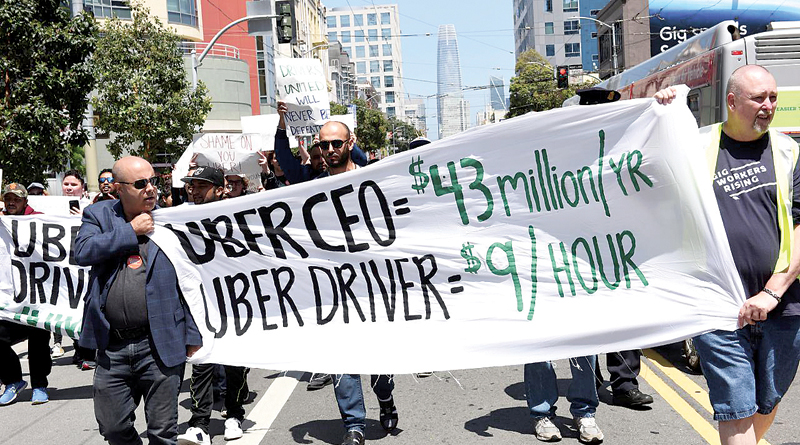

Edward Hadas -
For most US workers, life is good. Over 70 per cent of all Americans live in either middle-income or upper-income households, Pew Research calculates. Nearly two-thirds have gone for a week-long vacation in the last two years, according to a recent Allianz survey of US travel habits. For those left behind, though, everything is far from rosy.
Median weekly earnings, adjusted for inflation, have increased by only 4 per cent since 2000, well below the 16 per cent gain in economic output per person. And the employers of 31 per cent of US private-sector workers do not offer them health insurance, the Bureau of Labour Statistics calculates.
That ought to provide fertile ground for the kind of collective action undertaken by unions. Yet union membership has declined to 10.5 per cent of private-sector employees from 20.1 per cent in 1983, according to the BLS.
The problem is the actual and would-be workers at the bottom of the American economy include most of the 4 per cent of working-age people who have left the labour force since 2000 — some of them representing cohorts whose early deaths from drugs, drink and suicide have shortened life expectancy for middle-aged white Americans.
These left-behind groups have been hurt by the 37 per cent reduction in the real value of the federal minimum wage since 1968. They are the people most likely to be scraping a bad living in the gig economy, crippled by student and other debts, or lacking health insurance.
Today’s American labour unions are not well suited to these struggling workers. Some campaigners are trying to shore up their prosperity, for example by securing legal rights that force shared-economy giants like ride-hailing outfit Uber Technologies to treat workers more like employees and less like casual contractors. But progress has been slow.
Even if these and other efforts succeed, employing the poorest will remain a national challenge. Many have few skills, mental-health problems, or criminal records. Without a serious commitment from unions, governments and civic groups, too many will never find decently paid employment.
The rewards of success would go far beyond the so-called psychic income that comes from doing the right thing. Economic failure leads to or amplifies expensive social decay. Also, less needy poor people would be more voracious consumers, increasing demand.
That would be something to talk about at a Labour Day barbecue. — Reuters
Oman Observer is now on the WhatsApp channel. Click here



